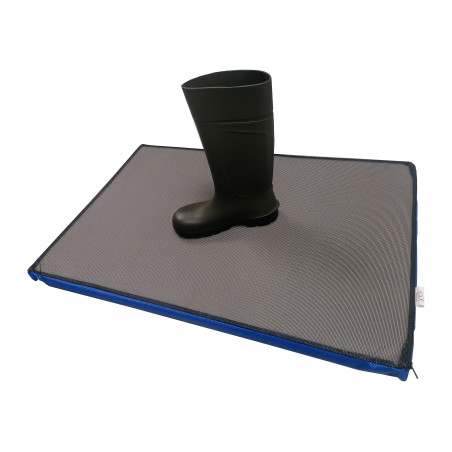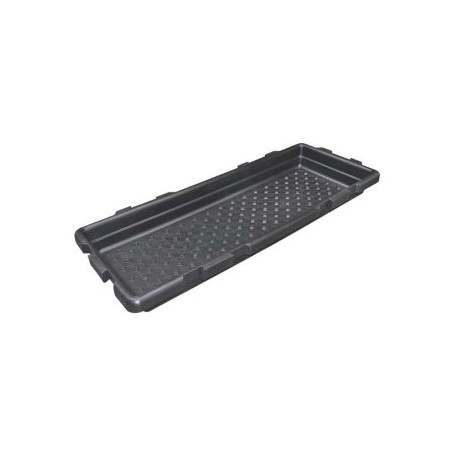The objective of this project was to investigate the potential of an Autogenous Killed (AK) Porcine Respiratory and Reproductive Syndrome virus (PRRSV) vaccine to control the disease in a small (20 km diameter) pig dense (1.4 site per km2) area in Québec, Canada over two years (2008-2010). Eighteen sow farms used the AK vaccine and 18 farms participated as controls. Vaccinated and control herds had similar sizes (100 to 2000 sows) and biosecurity practices (PADRAP tool). Seventy-three strains of PRRSV were sequenced in the zone. Most of these virus (63/73, 86%) were considered to be different
strains (< 92% of homology). Only a few (8/73, 11%) could be cultivated successfully for the preparation of the AK vaccine. AK vaccine was renewed every 6 months and four strains of PRRSV were included in each batch.
During the 2 years, 36 farmers reported 38 PRRSV related crises confirmed by laboratory methodologies (macroscopic and microscopic pathology and PRRSV identification).Production data analysis showed good agreement between reduced production, estimated by number of piglets per bred sow, and reported PRRSV crises (81% agreement and a kappa = 0.58).

Regional vaccination with an AK vaccine did not effectively reduce the number of PRRSV related crises in the vaccinated farms. Authors consider that the large number of different PRRSV strains circulating in the zone and the problems with virus cultivation explain the low efficacy of the procedure.
C. Klopfenstein, M. Bonneau, M. Morin, V. Dufour, F. Pouliot. Vaccination à l'échelle régionale contre le virus du SDRP avec un vaccin autogène : une expérience sur le terrain. 2012. Journées Recherche Porcine, 44, 93-94.








